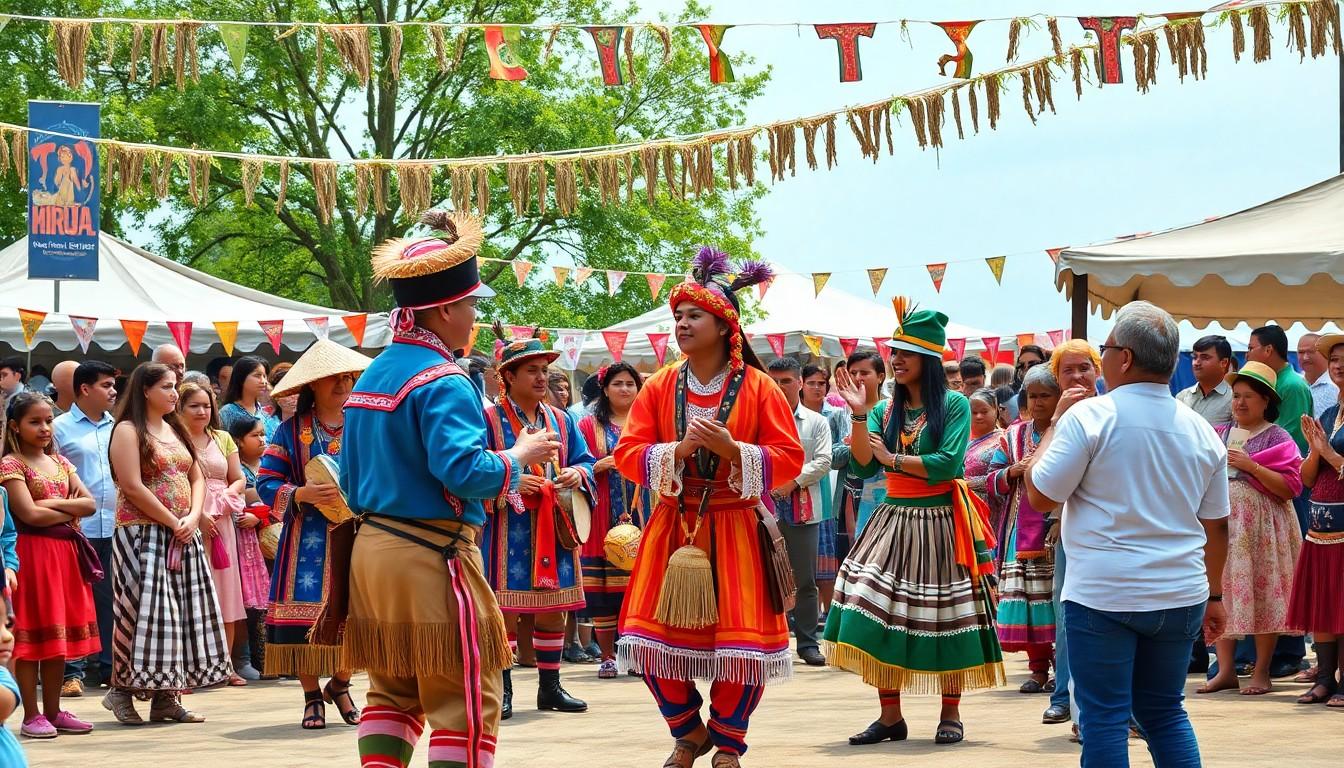Physical Address
304 North Cardinal St.
Dorchester Center, MA 02124
Physical Address
304 North Cardinal St.
Dorchester Center, MA 02124

Vophakatuwa might sound like a spell from a wizarding world, but it’s actually a fascinating concept that’s capturing attention. This unique term blends culture, tradition, and a sprinkle of mystery, making it a topic worth diving into. Whether you’re a curious explorer or a seasoned enthusiast, vophakatuwa promises to unveil secrets that could tickle your brain and spark your imagination.
Imagine a world where every story has a rhythm, and every tradition dances to its own beat. Vophakatuwa embodies this vibrant essence, inviting everyone to join the celebration. So grab your favorite snack and settle in; this journey will be anything but boring. Get ready to discover the delightful nuances of vophakatuwa that’ll leave you chuckling and craving more. Who knew learning could be this much fun?
Vophakatuwa embodies an intriguing blend of cultural elements and narrative traditions. This concept captivates audiences and invites exploration into its rich layers.
Vophakatuwa traces its roots to ancient storytelling practices. These practices evolved over centuries, woven into the fabric of local traditions and community gatherings. Communities frequently gathered for performances that celebrated myths, legends, and important life events. Historians note that each performance served as both entertainment and a means of cultural preservation, keeping oral traditions alive for future generations.
Culturally, vophakatuwa plays a vital role in strengthening community bonds. It fosters a sense of identity and belonging among participants and audiences alike. Rituals associated with vophakatuwa often include music, dance, and visual art forms that enhance the overall experience. Engaging with this tradition allows individuals to connect deeply with their heritage, promoting the transmission of values, beliefs, and history through generations.

Vophakatuwa showcases distinct cultural elements and storytelling traditions. Engaging performances captivate audiences through a blend of myth, legend, and community history.
Vophakatuwa features expressive storytelling that incorporates music and movement. Visual arts enhance the narrative, providing a multi-sensory experience. Participants often wear traditional costumes, symbolizing their cultural heritage. Rhythmic patterns define the storytelling style, making it memorable and engaging. Interaction between performers and the audience fosters a shared experience, creating lasting bonds within the community.
Communities utilize vophakatuwa during festivals and gatherings to celebrate significant cultural events. Educators can integrate this tradition into curricula to teach history and values. It serves as a platform for preserving local legends and fostering intergenerational dialogue. Organizations often partner with local artists to promote vophakatuwa, enhancing cultural tourism and community pride. Additionally, it provides therapeutic benefits through expressive performance, offering participants a means to connect emotionally and culturally.
Vophakatuwa offers numerous advantages that extend beyond mere entertainment. This vibrant tradition enhances emotional well-being and strengthens community ties.
Engagement with vophakatuwa promotes mental health by providing a creative outlet. Participants often experience reduced stress levels through rhythmic storytelling and performance. Regular involvement leads to increased emotional expression, allowing individuals to connect deeply with their cultural roots. Physical activity during performances contributes to overall fitness, enhancing both coordination and stamina. Sharing stories within a community fosters a supportive environment, positively influencing overall happiness and life satisfaction.
Vophakatuwa builds community cohesion and promotes inclusivity. Its performances create spaces for dialogue, allowing individuals to share their life experiences and cultural narratives. Through these interactions, participants develop mutual respect and understanding. Additionally, vophakatuwa serves as a bridge for intergenerational connections, encouraging elders to pass down traditions to younger generations. This shared cultural identity strengthens bonds within the community, fostering pride in shared heritage and collective history.
Vophakatuwa faces several challenges and controversies, impacting its practice and reception in modern society.
Many often misconstrue vophakatuwa as merely entertainment, overlooking its deep cultural significance. Participants express frustration when audiences fail to appreciate the historical narratives interwoven within performances. Confusion arises due to varying interpretations of vophakatuwa’s purpose across different communities. Diverse cultural backgrounds contribute to these misunderstandings, creating a divide between traditionalists and contemporary practitioners. People unfamiliar with the nuances may reduce it to simplistic terms, undermining its richness. Efforts to raise awareness are necessary to bridge these gaps and enhance appreciation for vophakatuwa’s layered storytelling.
Conservation of vophakatuwa presents significant challenges that communities grapple with today. Rapid urbanization often threatens traditional practices, as younger generations gravitate toward modern entertainment forms. Preservation advocates stress the importance of maintaining authenticity while adapting to contemporary contexts. Engaging educational programs encourage intergenerational transmission of knowledge but face resource limitations. Local governments must prioritize support for initiatives aimed at safeguarding vophakatuwa’s heritage. Communities that embrace collaborative efforts can foster resilience against cultural erosion, ensuring the survival of this vital tradition for future generations.
Vophakatuwa stands as a vibrant testament to the power of storytelling and cultural expression. It not only preserves the rich traditions of the past but also fosters community bonds and emotional connections among participants. As challenges arise in the modern world, the importance of safeguarding this unique practice becomes even more critical.
By embracing both its historical significance and contemporary relevance, communities can ensure that vophakatuwa continues to thrive. This cherished tradition invites everyone to engage with their heritage while celebrating the shared narratives that unite them. The journey of discovery through vophakatuwa promises to enrich lives and strengthen cultural identities for generations to come.